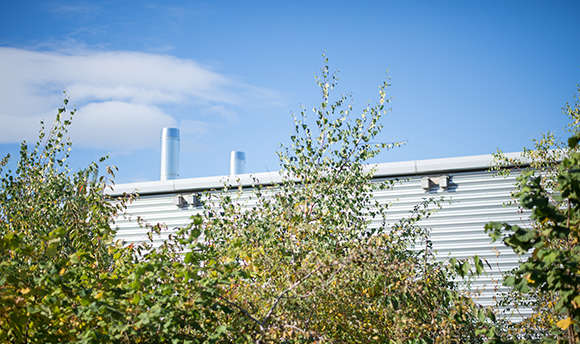Smoking Policy
Queen Margaret University aims to ensure the health, safety and welfare of its employees, students and visitors to its campus and to raise environmental standards. The purpose of this Policy is to ensure that all employees, students and visitors to the University are aware of its position on smoking.
Principles
Smoking is damaging to health and harmful to the environment. The University aims to provide a smoke-free environment for employees, students and visitors.
The University as an employer has a duty to ensure, so far as is reasonably practicable, the health, safety and welfare at work of all its employees under the Health and Safety at Work Act 1974. It has a duty to do all that is reasonably practicable to provide and maintain a working and learning environment that is safe for all, without risk to health and is adequate as regards facilities and arrangements for their welfare at work. It also has a duty to control the risks to people not in its employment which arise from the operation of its business. The University shall protect non-smokers from the risks to health from passive smoking and protect all users of the University’s premises and property from increased risk of fire. Reducing the number of potential sources of ignition can only assist in achieving this goal.
As of the 26 May 2006 smoking was prohibited in all workplaces, in terms of the Smoking, Health and Social Care (Scotland) Act 2005.
The law prohibits smoking in certain public places which are ‘wholly or substantially enclosed’, including the majority of workplaces. It is an offence to smoke in no smoking premises or to knowingly permit smoking in no smoking premises. The University faces a fixed penalty fine of £200 for allowing anyone to smoke on the premises and individuals can face a personal fine of £50 for smoking. Failure to pay or repeated offences can result in prosecution and a fine of £2,500. Vehicles used for business purposes are also be affected by the law.
For the purpose of clarity the use of e-cigarettes is included in the definition of smoking
Objectives
This Policy has been developed with the following objectives in mind:-
- To protect all employees, students and visitors from exposure to second-hand smoke;
- To assist compliance with the Smoking Health and Social Care (Scotland) Act 2005;
- To reduce the risk of fire within the University;
- To reflect a renewed emphasis on fire risk assessment in respect of potential harm caused by fire in the workplace as per the Fire (Scotland) Act 2005.
Scope
This Policy applies to all employees, students and visitors to the University.
Restriction on Smoking
Smoking is only permitted within the designated smoking area.
Smoking is prohibited in all other areas of the University and for the avoidance of doubt includes such areas as:
- Within buildings
- University Square
- 10 metres of any QMU building,
- Paths, decking and grassed areas within the University grounds
- The car park
- University vehicles
Breaches
Persistent breaches of this Policy by staff and students could result in a disciplinary offence and may amount to misconduct in terms of the University’s disciplinary policy which could render the employee/student liable to a disciplinary.
Any breaches of the policy by employees and students will be dealt with in accordance with the University’s disciplinary policy and procedures.
Visitors in breach of this policy will be asked to leave the campus
Further Information
You can find more about smoking and obtain support if you are trying to give up from:
- Your local GP
- The Public Health Department and or your local NHS boards
- Smokeline 0800 848484, this is a freephone counselling service provided to give help and advice to smokers who are trying to give up, or your can look on their web page canstopsmoking.com
N.B. It is important to note that failure to comply with the Smoking, Health and Social Care (Scotland) Act 2005 is a criminal offence. Any individual in breach of the Act, including employees, students and visitors may be liable to a fixed penalty fine. Such fines are imposed by Environmental Health Officers who may conduct spot checks on the University premises.

























